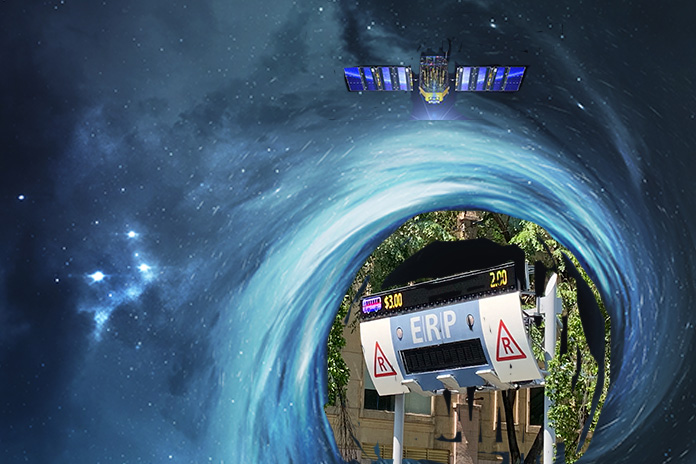
THE road to the reality of George Orwell’s dystopian novel, 1984, is shortening.
More so for motorists in Singapore.
The upcoming satellite-based electronic road pricing (ERP) system boots us into the space age and into an unhappier and costlier future.
The $556 million Global Navigation Satellite System (GNSS)-based ERP system will be implemented progressively from 2020.
A bulky new On-Board Unit (OBU) will replace the existing In-Vehicle Unit (IU) to vacuum your funds based on the distance travelled. Besides being big, and distracting, compared to the existing IU, it can be used to deliver useful services to motorists, like traffic advisories. It can also be used to pay for parking, checkpoint tolls, and usage of off-peak cars electronically.
But if you go by what the digital era has unleashed upon us — cyber threats, malware, stolen data, spying, and more that can be imagined into existence — the system is equipped to handle much more.
Governments have been known to impose their will on their citizenry when they feel the need for it; be it in the name of safety or convenience.
Motorists Better Watch It
So, for the heavy-footed or those prone to waiting where they shouldn’t, then be prepared to face fines since you can presume this satellite system is equipped to spy on your movements. And when facial recognition kicks in, you will be in a situation where you can’t run and you can’t hide.
But the new system also does away with the physical aspects of the road pricing that we have grown to loathe. Just as we go cashless and forcibly pay wave our way through transactions, we lose sight of the amount of money we have or even the feel of it in our hands.
The unfailing gantries may be dismantled and taken down and out of sight, but their absense would also mean you have no physical demarkation of where the ERP kicks in so that you can do your utmost to avoid it.
Also, with GNSS, “gantries” could be easily relocated with a few key strokes.
This material evaporation must have an impact on society’s spending behaviour. It’s similar to the arrival of credit cards, which encourage (over)spending. Only difference is, you have a month to make good on the payment, whereas by going cashless today, the money leaves your wallet immediately.
And in the event you run out of funds mid-transaction, expect the law to come down hard on you, penalising you in the guise of “administrative fees”. All these add up towards paying that hefty $556 million bill that motorists didn’t ask for.
For FY2019, some $38.5 million in traffic fines is the figure that’s budgeted for collection.
What will it be from next year?





















